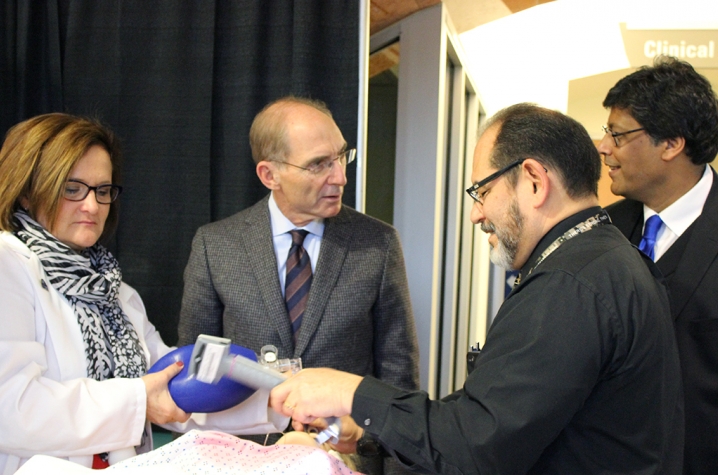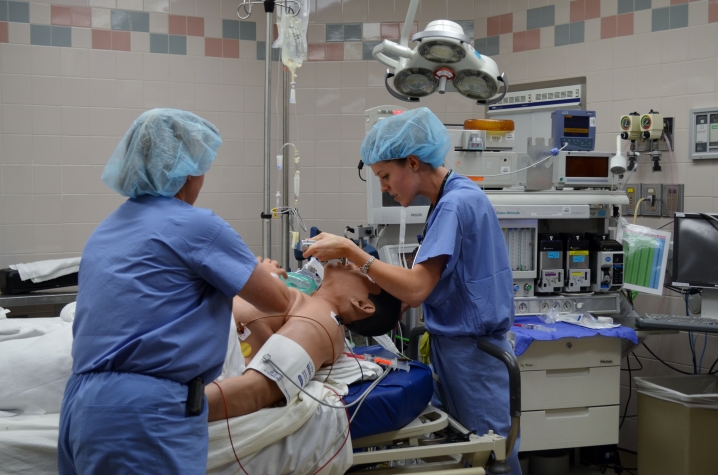Expo Gives Close-Up Look at State-of-the-Art Robots and Simulators Used for Medical Training
LEXINGTON, Ky. (Nov. 14, 2014) – Before graduating from the University of Kentucky College of Medicine, fourth year medical students participate in a simulated-based internship "prep week" that includes training on adult and pediatric patient scenarios with high tech patient simulators.
This experience incorporating clinical simulation is just one example of the vital and growing use of simulators in providing individual as well as team training in a safe clinical environment without compromising patient safety, said Dr. Zaki Hassan, professor of anesthesiology and surgery in the UK College of Medicine.
To further coordinate clinical simulation training and serve as a resource for students and faculty, UK HealthCare has recently established the Office of Clinical Simulation led by Hassan. Under Hassan’s leadership in this area, UK's simulation program was among the first 20 programs in the nation to be accredited by the American Society of Anesthesiologists, providing simulation training as part of the mandated Maintenance of Certification in Anesthesiology.
Along with UK College of Medicine students, nursing and pharmacy students as well as many faculty members utilize clinical simulation both for training and maintenance of skills.
"Clinical simulation is a way for students and faculty to learn new skills and procedures and practice techniques in a completely safe environment," Hassan said. "It is also is increasingly used to simulate environments for instance, working in an isolation unit where groups of medical professionals have the opportunity to learn and practice clinical teamwork and communication needed in real-life situations."
On Nov. 13, the UK Chandler Hospital Pavilion A ground floor atrium had on display 20 clinical simulators including high-tech patient-mannequins, robotics and task simulators used during training. Along with students and patient care providers, UK President Eli Capilouto and UK Executive Vice President for Health Affairs Dr. Michael Karpf tried their hand at some of the simulators.
"Any time we can enhance and improve medical training for our students, faculty and our interprofessional health care teams, it ultimately benefits our patients," said Capilouto. "Just as professionals in other very high-tech and specialized fields use simulators for training and practice, these robots and high-fidelity simulators allow our doctors opportunity to perfect their skills and enhance their knowledge."
From learning patient management techniques during cardiovascular and respiratory emergencies to practicing placement of central venous catheters, the use of simulators has become an invaluable part of training for medical students as well as for retraining and skill practice for health care professionals.
"At UK HealthCare, patient safety is of the utmost importance and medical simulation offers clinicians the opportunity to learn and practice new skills in a manner that protects patient safety while providing a very realistic experience for the learner," said Karpf.






